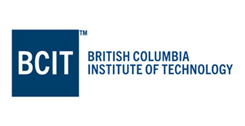 Construction
Construction Online scheduled
Online scheduled Fall Term
Fall Term Winter Term
Winter Term Spring/Summer Term
Spring/Summer Term $2000+
$2000+ English
English
The Essentials Net-Zero and Passive House Construction microcredential is for individuals who want to gain the skills and knowledge to construct high-performance buildings to meet the BC Energy Step Code, Net-Zero Energy, and Passive House standards. Every industry practitioner will benefit from an applied understanding of the unique requirements of Net-Zero and Passive House design and construction.
The microcredential contains the essentials needed for understanding building enclosures, electrical and mechanical systems, and processes and considerations for these new codes and standards. The microcredential consists of four courses using practical examples of wood- framed construction from seasoned industry leaders. An optional hands-on lab course is available for those interested. This program is delivered online and is offered on a course-by-course basis.
Upon completion, learners will have:
Architects, Designers, and Energy Advisors will learn features and considerations for designs that feature constructible details, incorporate best practice on building science and durability, and consider both operating emissions and embodied carbon. Evolved practices for mechanical and electrical system planning, design coordination, and final performance in Net Zero and Passive House construction.
Builders, Trades, and Project Managers will learn construction details and approaches to ensure compliance with Passive House and Energy Step Code performance metrics, strategies to manage compliance risk on a project and how to address current industry issues such as material compatibility. Evolved practices for mechanical and electrical system design coordination, quality installation and system verification in Net Zero and Passive House construction.
Planned assessments vary and include quizzes, hands-on learning activities, and participation during lectures.
This microcredential provides a solid foundation of knowledge and skills for people working in the construction industry to assist in their ability to design, plan, and implement projects that contribute to energy security and sustainability.
Topics covered include:
 Fall Term
Fall Term Winter Term
Winter Term Spring/Summer Term
Spring/Summer Term